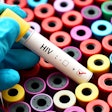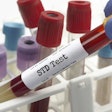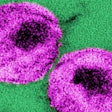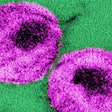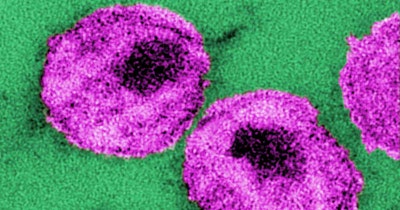
Validation of a test that detects HIV, hepatitis B, and hepatitis C from a single drop of blood has created a new option for diagnosing the infectious diseases in settings where standard venipuncture is impossible.
Samples collected via venipuncture enable the accurate diagnosis of HIV, hepatitis B, and hepatitis C. However, in some locations where the three infectious diseases may be prevalent, such as prisons, drug rehabilitation centers, and homeless shelters, it can be unsafe and impractical to use needles to take blood samples from veins.
Recognizing this unmet need, researchers at Copenhagen University Hospital in Denmark developed and validated a test for detecting the pathogens in a single drop of blood. The team is presenting its findings at the European Congress of Clinical Microbiology & Infectious Diseases this week.
The nucleic acid amplification test (NAAT) method begins with the collection of whole blood from a finger on a Proteinsaver card -- a kit for protein collection, transport, and storage. After drying the sample, the researchers cut out a dry blood spot (DBS) measuring 1.2 cm in diameter, and transfer it to a tube containing specimen transport medium ready for incubation at room temperature and centrifuging.
Analysis of the incubated, centrifuged DBS samples takes place on the Hologic Panther system using the firm's commercial Aptima assays. Panther is a fully automated system that runs a range of infectious disease and women’s health assays, including tests for SARS-CoV-2. The installed base of the system rose as labs added capacity to test for COVID-19, meaning that the equipment is now available at many public health labs.
To validate the test, the researchers ran the process on 10 negative and 20 positive plasma samples. The test correctly identified all of the negative and positive DBS spots, despite the researchers diluting the samples to the extent that the three viruses were present at much lower levels than are typically seen in untreated patients. Copenhagen University Hospital’s Stephen Nilsson-Møller outlined uses of the test.
“The dried blood spot test is ideal for places where you don’t want to use a needle for safety reasons or where it is less practical," Nilsson-Møller said in a statement. "It is also suitable for developing countries or places where you run the risk of a blood sample being ruined before it is transferred to a laboratory that can analyze it. Blood samples need to be analyzed within six hours when kept at room temperature, while dried blood spots can last for nine months without refrigeration."
Officials in Copenhagen have begun using the test to screen persons who inject drugs for the viruses. In a study of clinical samples of 83 people, the test found 11 cases of hepatitis C and no cases of the two other pathogens.









